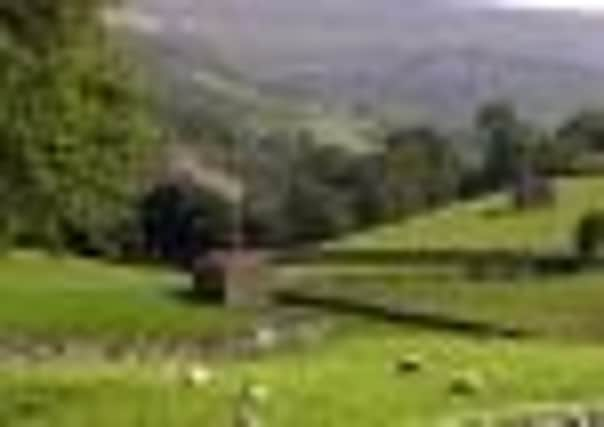Caroline Spelman: Sowing the seed for the future of farming


Yorkshire’s countryside is beautiful and its rural culture is rich. But that’s not the full picture. There are advantages to living in the country – but there are also real challenges.
Rural communities are more dispersed than urban ones; rural dwellers can live many miles from the services they need. Facilities that many take for granted in towns and cities – fast broadband connections, for example – can be frustratingly absent.
Advertisement
Hide AdAdvertisement
Hide AdI want to help rural communities to flourish and do all I can to remove the obstacles with which rural communities and businesses have to contend.
Lack of broadband access, for example, is restricting young people’s education, hampering the work of farmers, holding back rural businesses and leaving people isolated.
The Government’s objective is to have the best superfast broadband in Europe by 2015, and a key focus is on improving access to broadband in rural areas. North Yorkshire has been selected as one of the four rural broadband pilot areas to test the commercial roll-out of broadband across the country.
We are also looking at ways of helping with fuel costs in remote rural areas, and we’re considering ways of improving rural public transport, such as community transport schemes where minibuses are shared by different groups.
Advertisement
Hide AdAdvertisement
Hide AdWe also want to enable rural communities to tell Defra about the issues they are facing; which is why we are encouraging the formation of the Rural and Farming Network. I hope that members of the farming, food and rural sectors in and around Yorkshire will be forming a group that can be part of that network, which will provide a direct link to Defra Ministers.
We are determined to improve the competitiveness of the UK tourism industry. Visitors spend £6.5bn annually in Yorkshire and Humber. Tourism supports 172,000 jobs in the region. To help this vital sector to grow, the Government will be funding the most ambitious marketing campaign ever to attract visitors to the UK in the years following the London Olympics.
The campaign aims to attract four million extra visitors to Britain, and an accompanying £2bn for our economy. We also want to increase the proportion of UK residents who holiday in this country to match those who holiday abroad.
More than two-thirds of England is farmland, making farmers not only food producers but the main guardians of our natural environment and the benefits it provides. England’s uplands, for example, are among our greatest natural assets, providing 70 per cent of our drinking water.
Advertisement
Hide AdAdvertisement
Hide AdIn Yorkshire, hill farming has a vital role in the wellbeing of rural communities and wider society. We want to support and encourage all hill farmers to become more competitive as livestock farmers, but also to help to diversify, whether as managers of nature in the uplands, or through other business opportunities. We’ve announced £26m to support hill farmers and help rural communities to thrive.
Through the Agriculture and Horticulture Development Board project, we are helping upland beef and sheep farmers in Yorkshire and the Humber with advice on reducing costs and improving performance and efficiency.
The project involves five farms in the upland areas of the Yorkshire Dales, North York Moors and the South Pennines.
Farmers need to look after the natural environment at the same time as producing more food, as the world’s population grows and demand for quality and variety increases.
Advertisement
Hide AdAdvertisement
Hide AdThe UK has a competitive edge in terms of its high-quality produce, and also its ethical production methods.
I’m determined to help British agriculture exploit this advantage, and to promote it as the vital industry it is – at home, in Europe and globally.
EU Protected Food Names are designed to boost returns for producers in a particular region or using a traditional method. Yorkshire Forced Rhubarb was the 41st British product to be added to the list, joining the likes of Swaledale Cheese, West Country Farmhouse Cheddar and Cornish Sardines. We are encouraging more UK applications for Protected Food Names status.
Food price volatility is continuing to be a concern for farmers and consumers alike. Last week, I went to Paris for the first-ever meeting of G20 agriculture ministers, to discuss food prices.
Advertisement
Hide AdAdvertisement
Hide AdThe actions we agreed are really good first steps towards a more predictable world for food producers and consumers in both developed and developing countries – including British farmers.
We are also pushing for ambitious reform of the CAP that will enable the farming sector to respond to and earn improved returns from the global market.
Rather than providing market-distorting subsidies, the CAP should be helping to build capacity, competitiveness and resilience.
With proposals for changes in the law expected from the European Commission this autumn, we have a window of opportunity to put the EU agriculture sector on the right path. A path to where all the UK’s farmers can make a fair living from the market to a strong and buoyant farming sector and a thriving rural economy.
Caroline Spelman MP is the Environment Secretary.